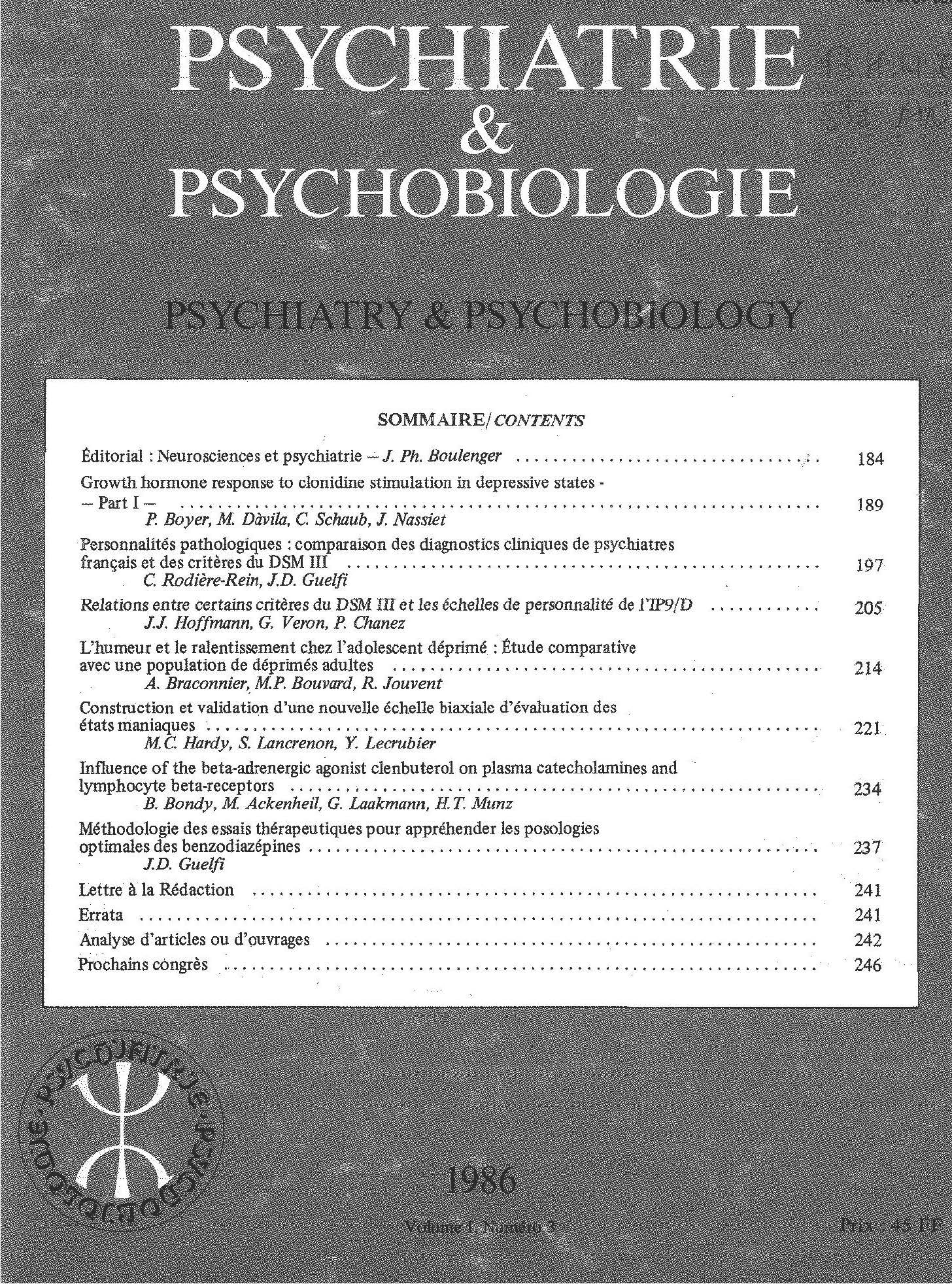No CrossRef data available.
Article contents
Baseline ACTH values and its relation to pre- and post- dexamethasone cortisol levels in depressed patients
Published online by Cambridge University Press: 28 April 2020
Summary
Baseline ACTH values were assessed in a large sample of depressed patients to establish correlations with baseline and post-dexamethasone cortisol levels. No statistically significant differences were found, indicating that excessive ACTH release mighl not be responsible for the elevated cortisol levels and nonsuppression by dexamethasone frequently observed in these patients. Other extrahypophyseal factors may mediate these responses.
Résumé
Les valeurs de la sécrétion basale d'ACTH ont été mesurées dans une population de 117 déprimés (R.D.C. : épisode dépressif majeur). Ceux-ci présentaient un poids proche de la normale, n’étaient traités par aucun médicament interférant avec les résultats du DST. Les témoins étaient 30 schizophrènes d'une part, et 25 dépressions secondaires (obsessions, phobies, alcoolisme) ainsi que 95 sujets normaux.
Afin d’éviter un stress, les prélèvements étaient réalisés grâce à un cathéter à 8 h, 8 h 30 et 9 h le premier jour, puis après administration de dexaméthasone à : 8 h - 8 h 30 - 9 h, 16 h - 16 h 30 - 17 h, 23 h - 23 h 30 - 24 h le lendemain.
Ces résultats ont été comparés aux valeurs de la sécrétion basale du cortisol et aux résultats d'un test de freinage par la dexaméthasone (DST). Les valeurs de la sécrétion d’ACTH dans les différentes populations malades sont présentées tableau 1 ; il n’existe pas de différence significative entre elles. Le groupe des 117 déprimés présente cependant des valeurs plus élevées que les témoins (figure 1). Nous n'avons pas trouvé de corrélation entre les valeurs de la sécrétion basale d’ACTH et celles du cortisol (sécrétion basale ou valeurs post DST) (tableau 2). L’influence de la distinction entre malades bipolaires et unipolaires sur les résultats est présentée tableau 3. L’absence de corrélation entre valeurs de la sécrétion d'ACTH et de cortisol suggère qu'une augmentation de la sécrétion d’ACTH n’explique pas les taux élevés de cortisol fréquemment retrouvés chez les patients déprimés ou l’absence de freinage par la dexaméthasone lors du DST. D’autres facteurs extrahypophysaires pourraient expliquer ces anomalies. Cependant, nos résultats pourraient être expliqués par des biais méthodologiques : valeur basale unique, écarts-types élevés etc…
Information
- Type
- Research Article
- Information
- Copyright
- Copyright © European Psychiatric Association 1987


Comments
No Comments have been published for this article.